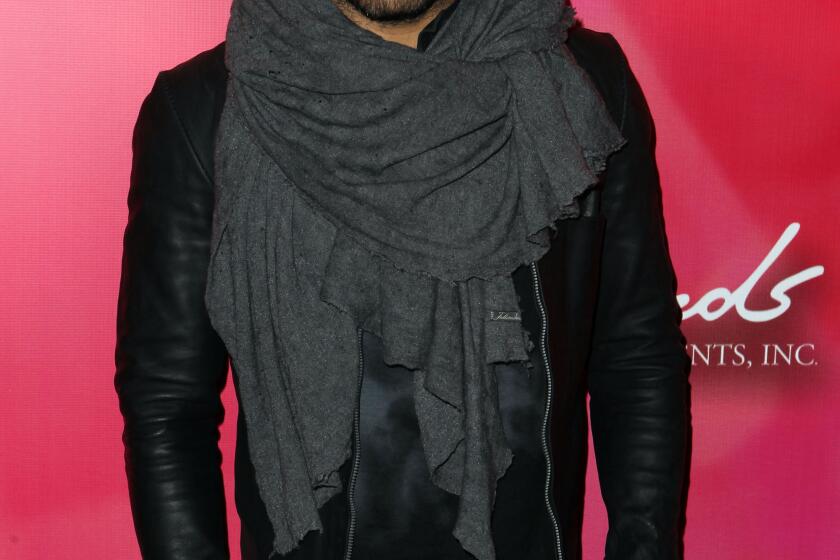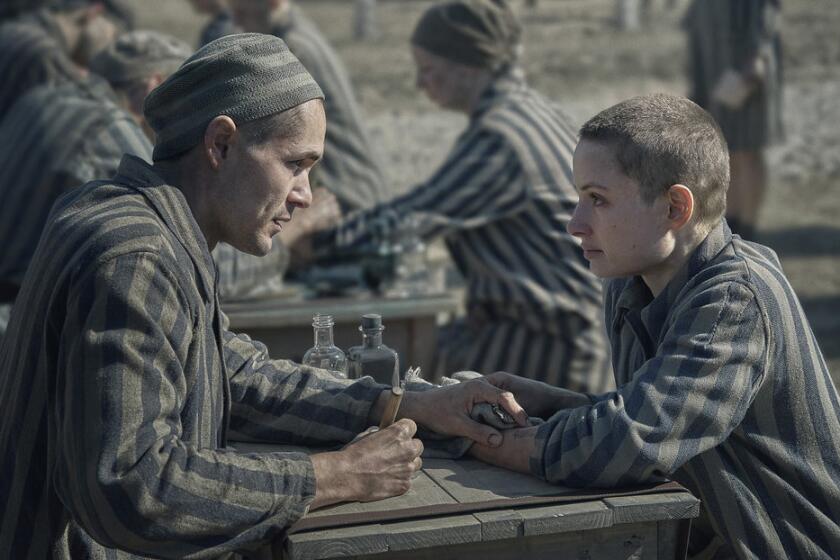Networks Use Web in Debate on Indecency
Hoping to defuse pressure for further government indecency crackdowns, networks and cable companies are borrowing a Web page from the playbook of their critics.
A new coalition called TV Watch, bankrolled in part by CBS parent Viacom Inc., Fox owner News Corp. and NBC Universal, recently launched an Internet site, at televisionwatch.org.
The move recognizes the importance of the Web in the public relations battle by broadcasters to blunt the growing influence of media watchdog organizations such as the Parents Television Council. Those groups are aggressively shaping Washington’s indecency debate, successfully using the Internet to get their message out publicly and to pressure legislators and regulators with complaints.
“The indecency debate has been dominated by groups pushing regulators and lawmakers to take steps to reinforce their view of television,” said TV Watch Executive Director Jim Dyke. “I’m convinced adults want to make their own decisions.”
Broadcasters already are looking at an expected boost in indecency fines coming out of Washington.
But networks and cable operators fear further public pressure could prompt even more scrutiny. A poll released last month by the Pew Research Center for the People & the Press said that 69% of 1,505 people surveyed supported higher indecency fines.
Networks hope their efforts will take some of that pressure off by showing they are actively encouraging parents to monitor and choose programs children watch, and that parental responsibility is a better alternative to government regulation. The new website’s message: “The government should not decide what you can watch; and special interest groups should not force your favorite shows off the air.”
Walt Disney Co.’s ABC isn’t part of the group, taking its own unspecified approach.
“We are all involved in providing consumers the ability to make educated choices through our public service campaign,” said ABC spokeswoman Julie T. Hoover. “The end result is the same, even if we choose a different approach.”
L. Brent Bozell, president of the Parents Television Council, predicted that the network effort would have no effect on the indecency debate.
“This supposed ‘coalition’ needs to be taken -- and dismissed -- for what it is: a collection of random citizen and public policy groups that have simply been hired and paid for by the networks to do their dirty work,” Bozell said in a statement. “It’s a laughable proposition to think that this hired gun coalition will have any impact whatsoever on the ongoing debate over decency and the public airwaves.”
Based in Los Angeles, the council generates about 90% of the indecency complaints made to the Federal Communications Commission. Although many of its complaints are ultimately dismissed, the council has been credited with initiating some FCC actions and raising public ire toward TV and radio indecency.
Internet marketing expert Seth Godin said that the network counteroffensive came after the Parents Television Council successfully put the networks on the defensive by simply asking “How can anyone be in favor of indecency in the media?”
But TV Watch’s Dyke disputes the notion that Americans are so incensed that they want more government crackdowns. He said a poll released by his organization found that 80% of viewers surveyed believe that more parental involvement is a better solution.
Like their counterparts in broadcasting, cable TV executives also are taking to the Internet, retooling a website called Controlyourtv.org aimed at encouraging families to manage their home TV viewing. The site offers visitors detailed information about how to configure their television or cable equipment to block objectionable shows.
Cable TV is not currently subjected to indecency regulations because public airwaves aren’t involved, although pressure is growing to do so.
Sens. John D. Rockefeller IV (D-W.Va.) and Kay Bailey Hutchison (R-Texas) have introduced a bill that would extend broadcast indecency rules to cable and satellite TV. And Sen. Ron Wyden (D-Ore.) has proposed a measure that would require all cable and satellite TV operators to offer their subscribers a “child-friendly” tier of at least 15 channels of video programming.
Station owners and cable TV operators have long had powerful lobbying organizations to press their economic issues on Capitol Hill. But some experts believe it will be much harder for companies to create a groundswell of support among the public for creative decisions some viewers may find offensive.
“It’s like flag burning,” said Robert J. Thompson, founder of the Center for the Study of Popular Television at Syracuse University. “Nobody is going to defend television.”
More to Read
The biggest entertainment stories
Get our big stories about Hollywood, film, television, music, arts, culture and more right in your inbox as soon as they publish.
You may occasionally receive promotional content from the Los Angeles Times.






